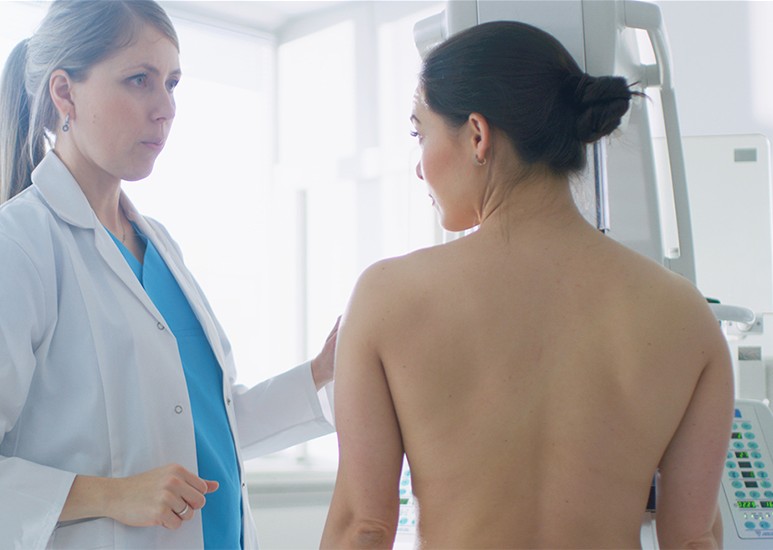Do I need a mammogram every year? If I have a family history of breast cancer, should I get one sooner? What if hurts?
You have questions about mammograms, and finding answers can be challenging. There is a lot of information out there. Sorting through it can be overwhelming, and well...confusing.
Here are the answers to some of the most common questions about mammograms.
What is a mammogram?
A mammogram is a screening during which a low-dose x-ray examines your breasts to look for abnormalities. A mammogram allows the doctor to have a closer look for changes in breast tissue that cannot be felt during a breast exam. Think of it as a more detailed screening than your routine breast self exams.
How is a mammogram performed?
A radiologic technologist places your breasts, one at a time, between an x-ray plate and a plastic plate. These plates are attached to the x-ray machine and compress the breasts to flatten them. This spreads the breast tissue out to obtain a clearer picture.
In a 3D mammogram, the machine captures multiple images of your breast tissue and layers them together for a more complete picture.
A screening mammogram only takes about 20 minutes from start to finish.
When should I start getting mammograms?
Most women should get their first mammogram at age 40. This valuable screening creates a baseline so that, over time, we can see changes in your breast tissue and more easily identify any abnormalities. After your first mammogram at age 40, you should get a mammogram every year.
If you have a family history of breast cancer, talk to your physician about when to get your first screening mammogram. A good rule of thumb is to have your first annual mammogram ten years prior to the earlier breast cancer in your family, but not before age 30 (due to radiation exposure risk). Dependent upon your situation, additional testing such as breast MRI could be considered. Some high-risk patients may need to see a genetic counselor to be evaluated for a hereditary predisposition to cancer.
Does mammography really prevent breast cancer deaths?
A high-quality mammogram plus a clinical breast exam (performed by your doctor) is the most effective way to detect breast cancer early. Finding breast cancer early greatly improves a woman's chances for successful treatment.
Detecting cancer early also increases long-term breast cancer survival rates. A European mammography screening study published in the BMJ found that when women are invited to be screened for breast cancer with mammography, breast cancer deaths can be reduced by nearly 28 percent.
Are there risks associated with having a mammography?
Simply put, if you have never had a mammogram and your physician asks that you do, don't delay in scheduling a mammogram – it only takes about 20 minutes of your time. A mammogram is much like an x-ray; there a few moments of pressure on your breast to get the image, but that that's all.
You might be worried about getting your mammogram. Part of that worry is linked to the "what ifs" that accompany a cancer screening. At Community Health Network, our expert care teams are focused on ways to reduce that stress and give women support throughout the entire journey.
Will my insurance cover my mammogram?
Most health insurers cover routine screening mammography. However, each insurer has their own guidelines. That is why we provide our patients with facts about the pros and cons of routine mammography. We are there to help our patients make an informed decision. Ask us about insurance or use our cost estimator.
Due for a mammogram?
We hope we've answered your questions about mammograms. Now, you are ready to schedule or walk in to your mammography screening. We offer many convenient locations for mammograms and breast screenings—daytime, evening, or weekend appointments—as well as online scheduling through eCommunity.com and MyChart.
Find a Screening Location
